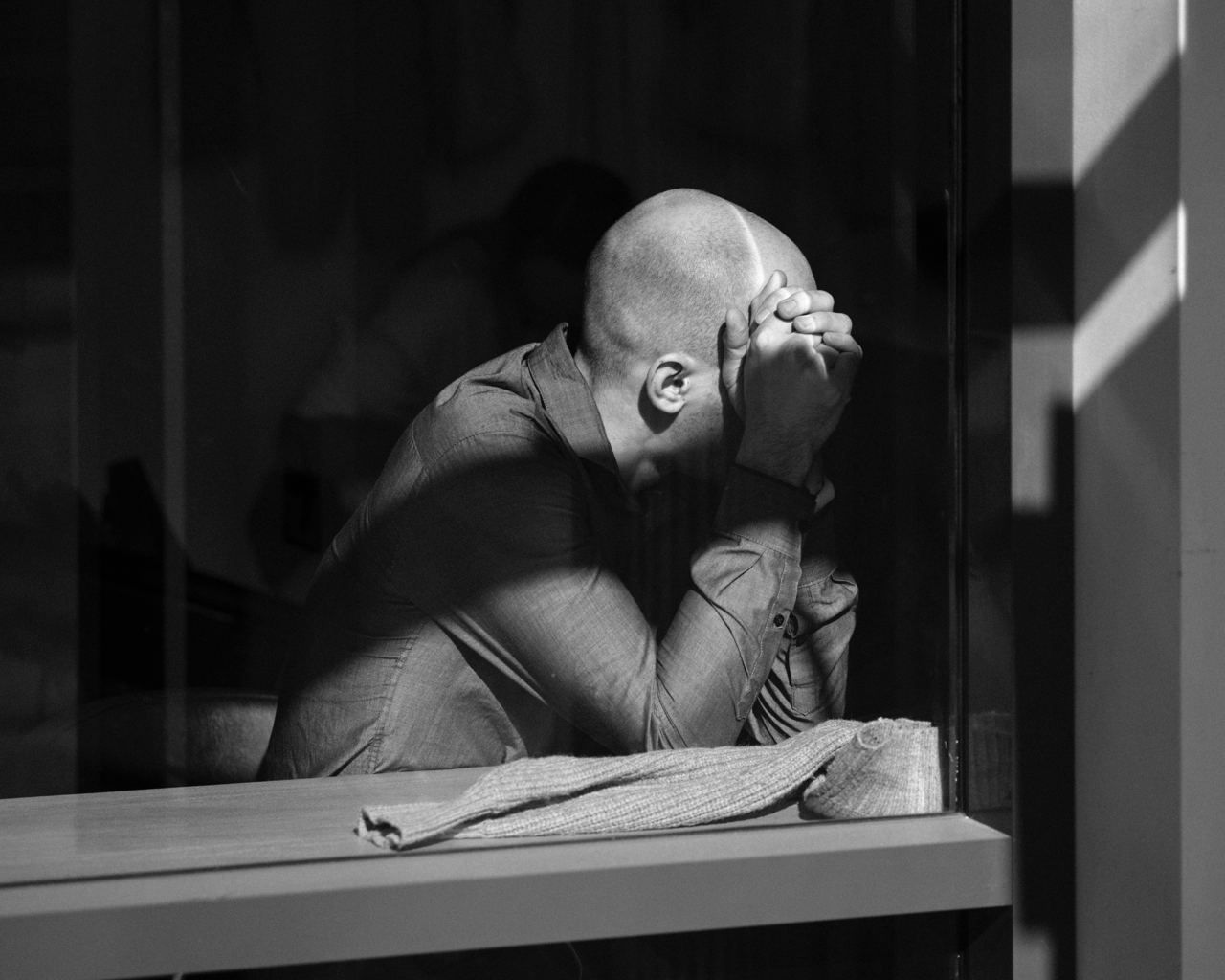Depression in Men: How to Recognize It and What to Do About It
-
Published:06 February 2025
-
Updated:06 February 2025

Depression is not just a temporary blues or bad mood but a serious mental disorder that can affect anyone, regardless of gender or age. However, depression often takes a hidden form in men, and many of them may not recognize this condition. Social stereotypes, culture, and expectations of “real men” often force them to hide their experiences, which complicates diagnosis and treatment.
Many people mistakenly believe that depression is a mood disorder that manifests itself in tearfulness, lack of appetite, and laziness and that it can be quickly and easily “cured” by work or tasty food. In fact, depression is a serious mental illness that requires immediate diagnosis and treatment.
Depression affects an estimated 3.8% of the population, including 5% of adults (4% of men and 6% of women) and 5.7% of people over 60 years of age. Depression affects approximately 280 million people worldwide. The prevalence of depression is approximately 50% higher among women than men.
Forms of Depression
During a depressive episode, a person experiences a depressed mood (feeling sad, irritable, empty). They may lose the ability to enjoy or be interested in everyday activities.
A depressive episode should be distinguished from regular mood swings. Depressive episodes last most of the day and occur almost every day for at least two weeks.
There are also other forms of depression, which may include:
- Diminished concentration;
- Pathological feelings of guilt or low self-esteem;
- Lack of faith in the future;
- Thoughts of death or suicide;
- Sleep disturbances;
- Changes in appetite or body weight;
- Feeling extremely tired or weak.
Depression can make it difficult for a person to function in all areas of life, including socializing at home, at work, and at school.
Delay in Seeking Help
Unfortunately, men are in no hurry to seek help from specialists. This is largely due to the specific role that modern society imposes on men, the stigmatization of psychiatry and psychotherapy, the lack of mental hygiene, and knowledge about the characteristics of the psychological state in stressful situations. Therefore, very often, men with depression come to a psychiatrist with a very serious condition, often with concomitant diagnoses such as alcoholism, panic attacks, and anxiety disorder.
Symptoms of Depression
It is important to recognize the symptoms of depression in men in time:
- Low mood, apathy;
- Alcohol or drug abuse;
- Anger, rage, aggression;
- Conflicts in the family and at work;
- Limitation of social contacts;
- Sleep problems (insomnia or, conversely, excessive sleepiness);
- Anxiety, restlessness.
As a rule, the catalyst for depression in men is a stressful situation - problems at work, financial difficulties, the loss of a loved one, an upcoming divorce, or health problems in themselves or their loved ones. Very often, men prefer to solve problems with alcohol, and alcoholism often develops against the background of depression.
Why Depression Often Remains Hidden in Men
Men are generally less likely to seek help for depression than women. This is due to a number of factors, including social stereotypes and pressures, that make men perceive depression as a sign of weakness. Society often expects men to be “strong,” “tough,” and “insensitivity.” As a result, many men do not express their emotions and hide the symptoms of depression, which leads to prolonged illness.
In addition, depression in men may not manifest itself in typical forms, such as crying or withdrawal, but in aggression, irritability, increased alcohol or drug use, and physical symptoms, such as back pain or headaches, decreased libido, and reduced or lost erection. Hidden depression is concealed behind phrases like "I'm just tired," "It's temporary difficulties," "I need to get some sleep and rest, it will all pass." Men with depression distance themselves from loved ones, stop communicating, while they may appear normal, but more often use dark humor or sarcasm, suppressing their true feelings.
Hidden depression in men can be dangerous because they are less likely to seek help, which increases the risk of suicidal thoughts and actions. According to statistics, men are three times as likely to commit suicide as women. This is because many men simply do not admit that they need support or do not know where to turn for help.
How to Treat Depression in Men?
Depression in men requires a comprehensive approach to treatment. It is important to understand that depression is not just a “bad mood” or “life’s difficulties.” It is a serious illness that requires professional intervention.
- Medication - Depression requires medication. Antidepressants prescribe to restore the balance of chemicals in the brain. However, medications must be prescribed by a doctor, and treatment must be carried out under the supervision of a specialist.
- Psychotherapy - One of the effective methods of treating depression is psychotherapy. Cognitive behavioral therapy (CBT) helps men change negative thoughts and attitudes that can contribute to the development of depression. Talk therapy, which helps patients express their emotions and learn to cope with difficult life situations, can also be useful.
- Physical activity - Regular physical activity, such as running, swimming, or yoga, can significantly improve the psycho-emotional state. Physical activity promotes the production of endorphins, the “happiness hormones” that help fight depression.
- Support from loved ones - Men suffering from depression can benefit from communicating with friends and loved ones. Support from family and friends plays an important role in the recovery process. If a man does not want to talk about his problems, it is important to create an atmosphere in which he feels safe.
Conclusion
Depression in men is a serious and often underestimated problem. It manifests itself in different ways, and men may hide their feelings and symptoms due to social stereotypes or fear of being judged. However, it is important to understand that depression is a disease that requires attention and treatment. Men should learn to acknowledge their emotions, ask for help, and not be afraid to accept help from specialists. It is important to remember that depression is not a weakness but a condition that can and should be treated.
Mental health professionals view about the impact of male gender for the treatment of men with depression - a qualitative study (https://pubmed.ncbi.nlm.nih.gov/32493263/), BMC Psychiatry. 2020 Jun 3;20(1):276. doi: 10.1186/s12888-020-02686-x. Accessed 6 Feb 2025.
Exploring the role of inflammation in major depressive disorder: beyond the monoamine hypothesis (https://pubmed.ncbi.nlm.nih.gov/38299049/), Front Behav Neurosci. 2024 Jan 17:17:1282242. doi: 10.3389/fnbeh.2023.1282242. eCollection 2023. Accessed 6 Feb 2025.
The influence of age on the female/male ratio of treated incidence rates in depression (https://pubmed.ncbi.nlm.nih.gov/11860609/), BMC Psychiatry. 2002:2:3. doi: 10.1186/1471-244x-2-3. Epub 2002 Jan 22. Accessed 6 Feb 2025.
The experience of symptoms of depression in men vs women: analysis of the National Comorbidity Survey Replication (https://pubmed.ncbi.nlm.nih.gov/23986338/) JAMA Psychiatry. 2013 Oct;70(10):1100-6. doi: 10.1001/jamapsychiatry.2013.1985. Accessed 6 Feb 2025.
Suicide Statistics (https://www.lifeline.org.au/resources/data-and-statistics/). Accessed 6 Feb. 2024.







.svg)
.svg)
